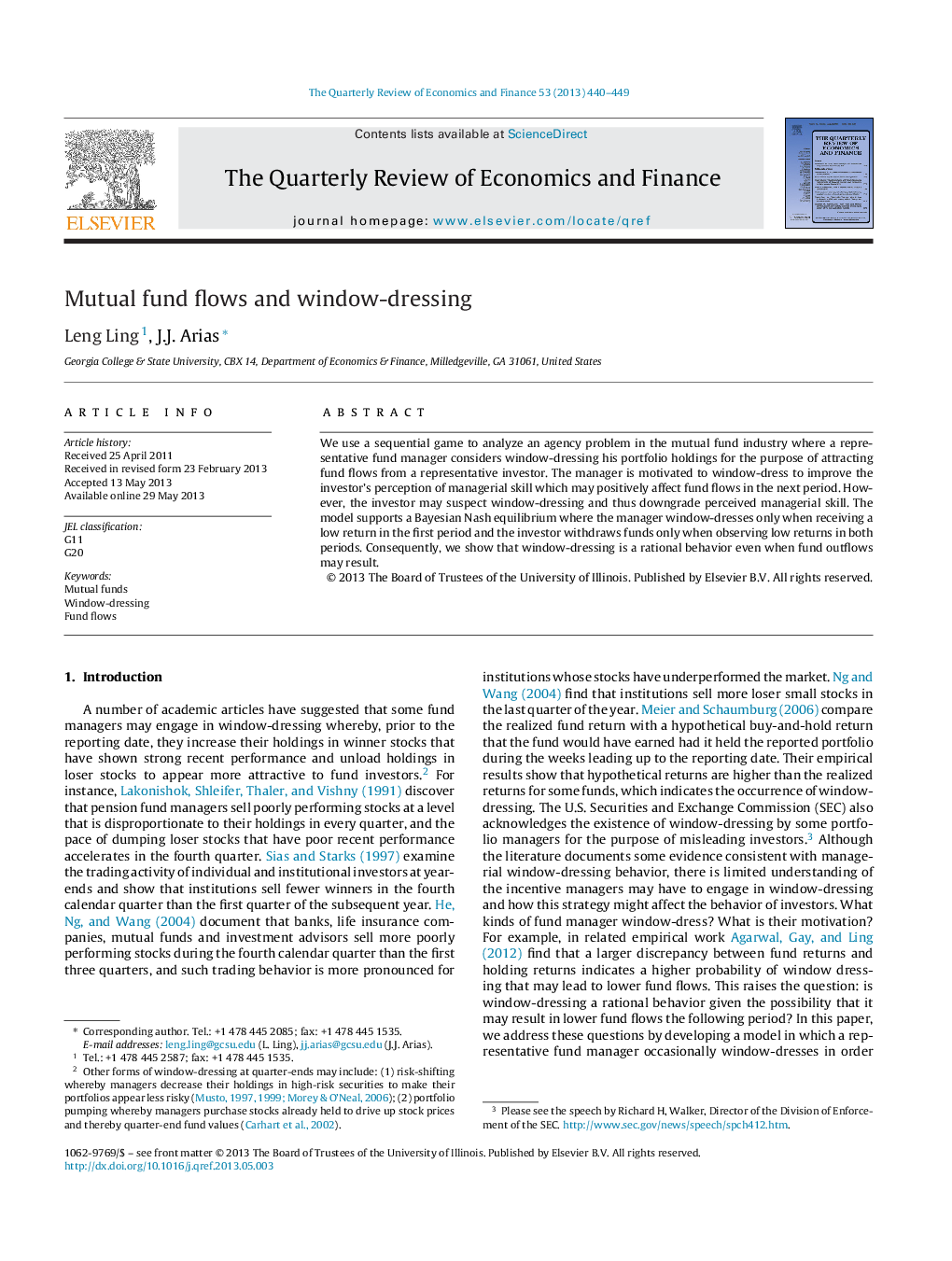| Article ID | Journal | Published Year | Pages | File Type |
|---|---|---|---|---|
| 983322 | The Quarterly Review of Economics and Finance | 2013 | 10 Pages |
•We model a sequential game between a fund manager and an investor.•An equilibrium exists where the manager sometimes window-dresses and the investor sometimes withdraws funds.•An equilibrium does not exist where the manager never window-dresses.•We show that window-dressing is a rational behavior even when fund outflows may result.
We use a sequential game to analyze an agency problem in the mutual fund industry where a representative fund manager considers window-dressing his portfolio holdings for the purpose of attracting fund flows from a representative investor. The manager is motivated to window-dress to improve the investor's perception of managerial skill which may positively affect fund flows in the next period. However, the investor may suspect window-dressing and thus downgrade perceived managerial skill. The model supports a Bayesian Nash equilibrium where the manager window-dresses only when receiving a low return in the first period and the investor withdraws funds only when observing low returns in both periods. Consequently, we show that window-dressing is a rational behavior even when fund outflows may result.
